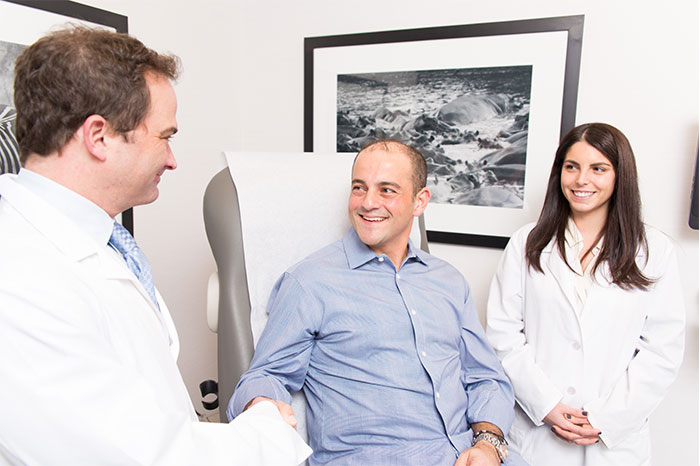One of the questions we get most often at the Suffolk County office of New York Bariatric Group is if bariatric surgery will get rid of diabetes or any of the other significant medical conditions that often accompany obesity. Those serious conditions are referred to as co-morbidities and their long-term effects are considered life-threatening. The good news is that, in many cases, the answer is yes.
Obesity is known to be the lead contributing factor causing type 2 diabetes and losing excess weight helps prevent its development, halt its progress, and, often, make it disappear altogether. In fact, reports have indicated that over 75% of obese patients with type 2 diabetes had their symptoms disappear and no longer relied on medications like insulin following their bariatric surgery.
If you have type 2 diabetes and traditional weight loss methods have proven unsuccessful, bariatric surgery may be an excellent option for you. Adjustable gastric band, sleeve gastrectomy, and gastric bypass surgery have all been proven effective at managing type 2 diabetes in obese patients.
First and foremost, losing a significant amount of weight through bariatric surgery will help control your blood sugar levels. Additionally, bariatric surgery diverts foods away from the blood sugar-regulating hormones in the small intestine.
In all but a few exceptions, these surgeries are performed laparoscopically through small incisions, leaving you with less scarring and a faster recovery than is associated with conventional surgery. Each of the procedures has its own advantages and risks. Your surgeon will assist you in choosing the surgery that is best for you.

